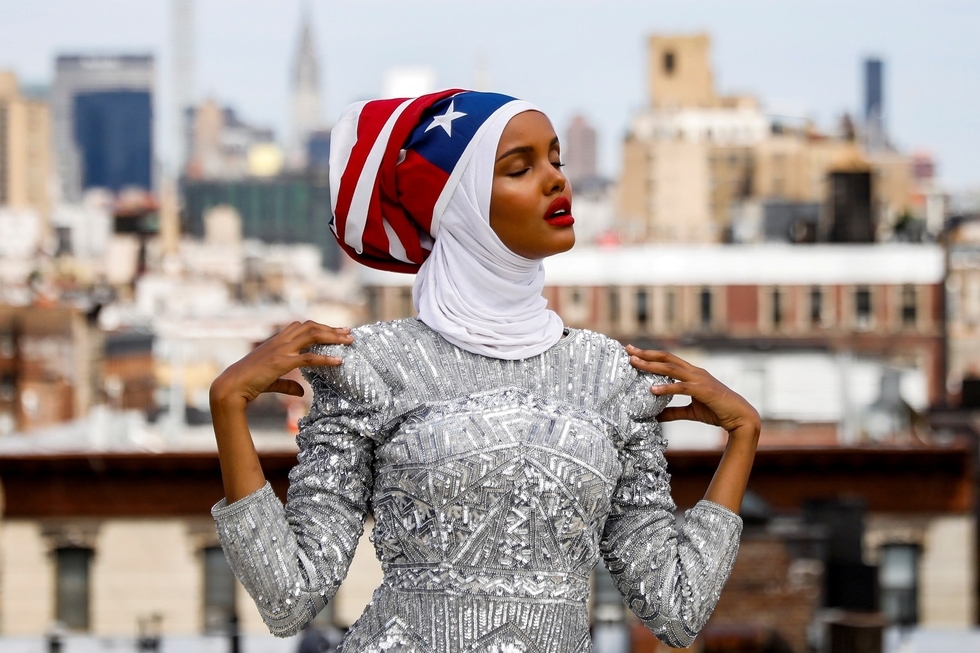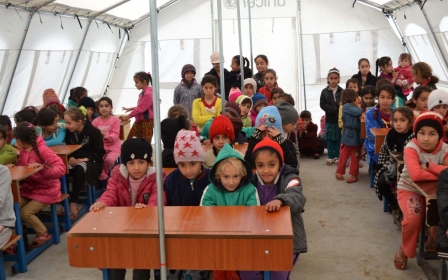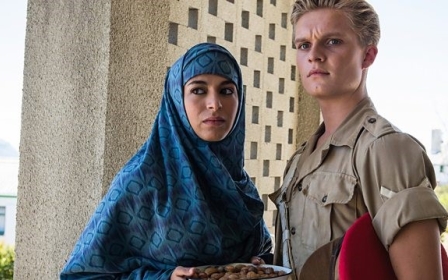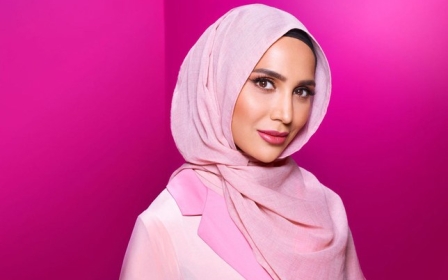What Amena Khan's apology tells us about the limits of Muslim 'success'

Can you campaign for fashion multinationals as a Muslim and keep faithful to your values? Four years after Amena Khan tweeted in support for Palestine, people decided that these tweets were too much to keep her at l'Oreal.
As a result, she stepped down from the campaign, deleted her tweets and apologised for these. Have multinationals become a new tool for controlling how Muslims should speak and how they should look?
In the wake of Brexit, US President Donald Trump's election and the vocal rise of the far-right in Europe, society has been apt at pointing out racism happening at an institutional level.
Structural exclusion
However, the l'Oréal incident with Amena Khan shows that structural forms of exclusion are perhaps more pervasive than we thought. While it has been possible to quite effectively monitor Islamophobia through its expression in discourses, hate crimes, policies and work practices, Muslims have been experiencing a more silent form of discrimination within society: through neoliberalism.
It is likely that this incident has only revealed the tip of a much larger iceberg. Neoliberalism started as the concept of free choice in the market: freedom to produce, freedom to sell and freedom to buy.
Promoting individual competition, what started in economics slowly took over all spheres of life, becoming the doctrine that market exchange is an ethic in itself, acting as a guide for all human action.
Neoliberalism thus gave birth to a new narrative: Muslims can be accepted in the mainstream if they become economic actors
As a consequence, for individuals to survive in a neoliberal society, one needs to be competitive, abide by the rules of financial performance and produce results – all the words we usually hear in big companies.
Because numbers rule everything, if anything cannot be quantified or monetised, it becomes not relevant. As an illustration, human rights ethics can be easily overridden when, for example, the UK justifies the arms trade with human-rights-violating Saudi Arabia.
However, there is an exception when culture and religion can be turned into profitable products, just like the South Asian Haldi Doodh became Turmeric Latte and the Miswak was appropriated as the Rawtoothbrush.
A profitable niche market
Realising that Muslims can be a profitable niche market pushed high-street companies to release modest fashion lines. Seeing models wearing the hijab featured in international campaigns or on larger-than-life posters covering London's iconic double-deckers has an immense symbolic impact for a community under scrutiny since more than two decades.
Neoliberalism thus gave birth to a new narrative: Muslims can be accepted in the mainstream if they become economic actors. It offers a theology of liberation: happiness and safety is to find success and success is becoming rich, famous or influential.
However, this presents some challenges. First, can modest fashion be truly liberating if these companies sell clothes made by underpaid factory workers in Asia, who die in catastrophes like the Rana Plaza?
Neoliberalism presents assimilation as the illusion of liberation
Second, can anyone truly achieve this kind of success? Muslims in Hollywood or in the fashion industry present a very white idea of success: most popular figures in the industry and on social media are fair-skinned, slim or athletic, hyper-masculine or hyper-feminine, and preferably do not mention religion. As an example of what happens to those who don't conform to this narrow version of Muslim and successful, why were black fashion bloggers excluded from Dubai Fashion Week?
Third, is accessing these elite circles a true way to achieve liberation? Looking at the United States which had black figures at the top of various industries for decades and a black president for two mandates, how did these achievements change the political situation of ordinary black Americans?
Neoliberalism's 'clever techniques'
These examples show the cost of accessing success in the mainstream for minorities in general: to climb the ladder, people have to adapt (if not sacrifice parts of) their culture, their ethics and their religion in an way deemed acceptable to the industries.
However, neoliberalism uses a clever technique: it doesn't force people to adopt the dominant norms but rather suggests that they are a necessary condition for acceptance and happiness.
Furthermore, it shows that staying at the top is only possible if one replicates the same systems of domination that perpetuate vast inequalities. This is what psychologist H Bulhan calls metacolonialism: it tells oppressed minorities that to be free, they need to become the oppressor.
In the past, people have occupied lands; Bulhan says that now, people are occupying minds.
Neoliberalism presents assimilation as the illusion of liberation and, by exploiting people's insecurities and vulnerabilities, it works like Islamophobia: while Islamophobia excludes, neoliberalism includes people at the cost of their plural identities.
Legitmising colonial endeavours
A recent study analysed how the perceived expectations of others, within the competitive environment created by neoliberalism, is one of the major causes of mental health problems across the modern world.
It is not surprising that, with the conjugated effects of Islamophobia, social expectations and bullying, Muslims are one of the groups most affected by mental health issues.
Neoliberalism has shifted the centres of power from state-level politics to financial centres and multinational companies. While political laws restrict, the laws of the market operate by depriving things of their meaning.
By de-humanising culture and faith, and converting them into numbers, neoliberalism has perhaps found the most efficient recipe for legitimising colonial endeavours; and as with any de-humanising process, opens the doors to violence. Further, by making society believe that it is the only viable way of existing, it works by spreading pessimism.
However, there is hope. Some small groups have understood that freedom cannot be found within industries and institutions as long as they abide by de-humanising standards; there is a need for building alternatives for healing, growth and self-determination.
In a similar way, perhaps Amena Khan, and other Muslim icons, will come to similar conclusions and explore ways in which it is possible to hold to their values and critically examine the implications of their choices.
Finding other ways is a form of optimism and it seems that in these divisive times, the mere act of remaining optimistic is an act of revolution.
- William Baryło is a researcher in sociology focusing on the articulations between diasporic cultures, religions and hyper-modernity from a decolonial and restorative perspective. He is an award-winning photographer and film-maker having directed the documentary ‘Polish Muslims: an Unexpected Meeting,’ premiered at the Polish Embassy in London and the author of ‘Young Muslim Change-Makers’.
The views expressed in this article belong to the author and do not necessarily reflect the editorial policy of Middle East Eye.
Photo: Fashion model and former refugee Halima Aden, who is breaking boundaries as the first hijab wearing model gracing magazine covers and walking in high profile runway shows poses during a shoot at a studio in New York City, US, 28 August 2017 (Reuters).
This article is available in French on Middle East Eye French edition.
New MEE newsletter: Jerusalem Dispatch
Sign up to get the latest insights and analysis on Israel-Palestine, alongside Turkey Unpacked and other MEE newsletters
Middle East Eye delivers independent and unrivalled coverage and analysis of the Middle East, North Africa and beyond. To learn more about republishing this content and the associated fees, please fill out this form. More about MEE can be found here.







